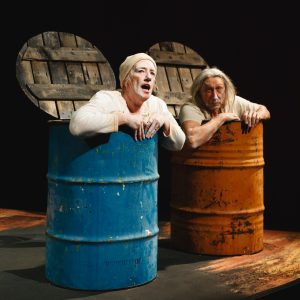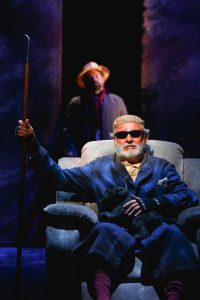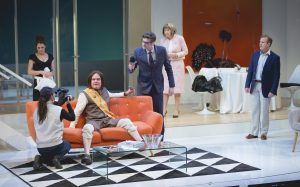Perth Concert Hall
reviewed by Neville Cohn
Vaughan Williams’ Fifth Symphony is seldom heard in this neck of the woods. Prior to the weekend, its most recent performance here was as far back as 1999 when Vernon Handley presided over events. It’s a very welcome return.
In less than totally assured hands, the Fifth can send sound endless and dull – a turn-off. But when directed by a master – and Douglas Boyd is most certainly in that category – then, with an orchestra very much on its toes, the result can be electrifying. To be frank, I can’t recall a presentation of the Fifth that moved me as much as that offered to a near-capacity house on Thursday. It was the chief offering in the WASO’s Morning Symphony series.
Beautifully expressive string playing gave point and meaning to the first movement, its deeply felt ideas building up to a magnificent climax. First rate oboe playing enhanced listening pleasure. The second movement, essentially a dance to tricky rhythms, made for totally engaging listening.
In indifferent hands, the slow movement can sound interminable – but when there’s inspiration from the podium, as was the case on Thursday, it made for blissful listening, an impression enhanced by first rate work on cor anglais in a moving, beautifully stated contribution. The finale came across as buoyant, celebratory, upbeat. It was an exultant offering. Laurels, in particular, to David Evans for horn playing of finesse; it gave the stamp of distinction to the finale, an account to remember for all the right reasons.
In an auditorium filled to near-capacity, Boyd and his forces rose splendidly to Vaughan Williams’ symphonic demands. I’d like to think that in some way we cannot comprehend, the spirit of that much-loved composer not only hovered over the proceedings but raised a hand in acknowledgement of a job splendidly handled.
I hope the performance was recorded for later broadcast across Australia. It certainly deserved to be – and I hope that Douglas Boyd will be invited back to preside over further Vaughan Williams works.
As curtain raiser, we listened to Saint Saens’ Cello Concerto No 1. It’s a trashy, shallow work – but, in the hands of a master cellist ( and Li-Wei Qin is definitely in that category), the concerto sounded far better than it in fact is. This is no small achievement on the part of the soloist. I very much hope we’ll hear this musician as soloist with the WASO again but in a work more befitting his exceptional skill in both technical and interpretative terms.





